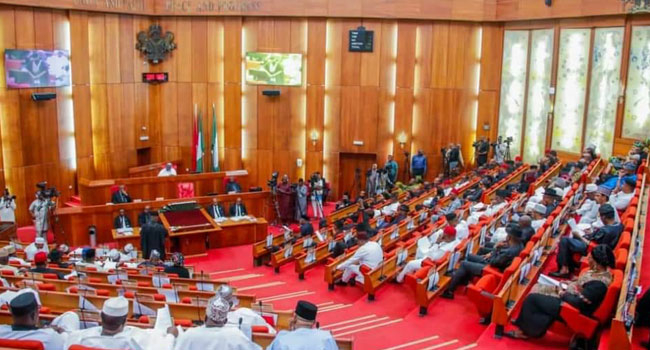- Proposed constitutional changes may impact state funding and participation in the scheme.
- Transparency and tech enablement are key to prevent issues like favoritism
During a public hearing aimed at evaluating the progress of the presidential committee tasked with eliminating legal obstacles obstructing Nigerian students’ access to loans, Honorable Terseer Ugboh, the Chair of the Ad-Hoc committee, unveiled this information.
The Chairman conveyed the committee’s commitment to facilitating the prompt initiation of the scheme as he addressed both the Federal Ministry of Education and the Implementation Committee.
Ugboh expressed dissatisfaction with the sluggish execution of the Students Loan Programme, which could have mitigated the impact of fuel subsidy removal. He urged the responsible parties to guarantee equitable allocation during distribution.
“We hope the system you are creating will be robust enough to take account of students who are already in school who want the loan to cover for the one year or two years of their schooling or students who are coming through direct entry.
“It seems to us from this perspective that 1% of the Federal Government Revenue as stated in the act would not be enough to cover students loans for a year given the Hundreds of thousands of students that we have getting admission every year and those who are currently in school who may wish to also apply for a loan to cover for other years of their schooling.
“I want to suggest that if there is the need to increase the requirement of 1% to 3%. Then propose that and we are ever willing to look at it.It is something that is quite critical. This is the area that the Ministry of education can also hold on for it to be jerk up to at least 3% of this revenue.
“Now we are hearing the states or local governments may or may not permit that deduction so I think there may be Constitutional amendment before that 1% may be drawn. So if that is not done, the Federal Government can only draw from its own share of revenue which means state universities may be excluded if the State Governments do not agree to participate in funding this student loan from their allocation from the Federal Government.
“The issue of transparency is very key to a scheme like this. One of the reasons why many previous schemes (students loan) failed was the issue of transparency and commitment to executing these schemes. You want to create a system that is technologically enabled so that issue of godfatherism will be out.
“The National Assembly is the arm of government that does appropriation and you mentioned that with the current act as it is, you suggested that there could be a supplementary budget so that this scheme can start up. But we can’t propose a supplementary budget if we don’t have an idea of what you think this student loans scheme will cost Nigeria,” he stated.
The Director of Legal Services of the Central Bank of Nigeria (CBN),
Kofo Alada who spoke for Technical Committee said a supplementary budget was needed to make funds available for the take-off of the scheme, assuring that his team has set a target earlier than November.










Discussion about this post